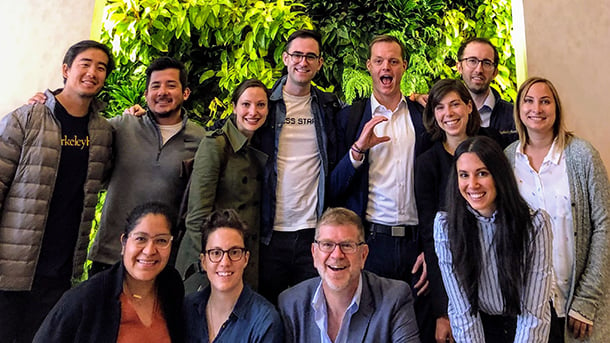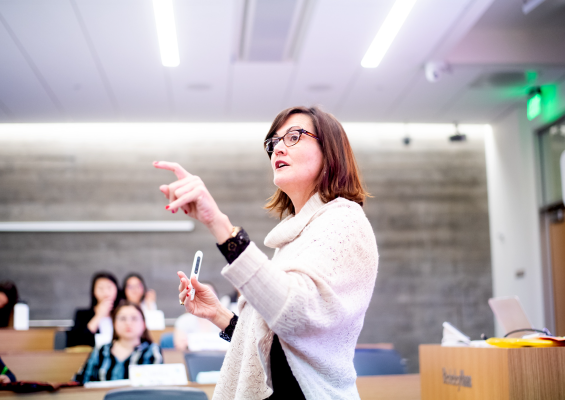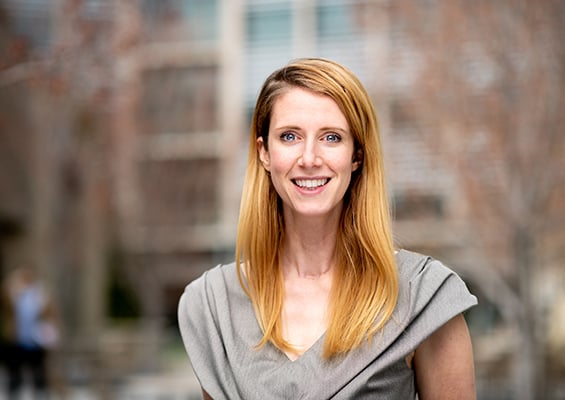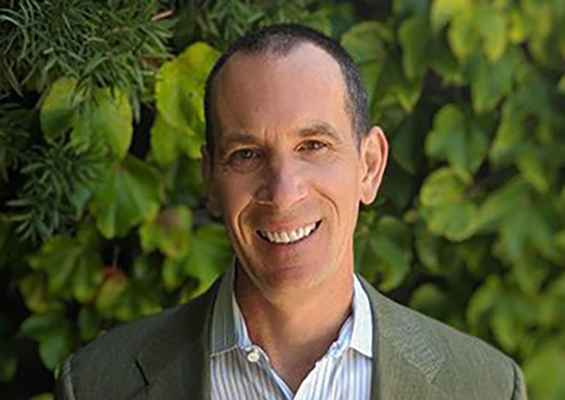One of the advantages of attending a top business school is the opportunity to learn from faculty like Dave Rochlin. Innovation and hands-on learning are central to him as an entrepreneur and as a professor at Berkeley, where he’s as much a coach as lecturer.
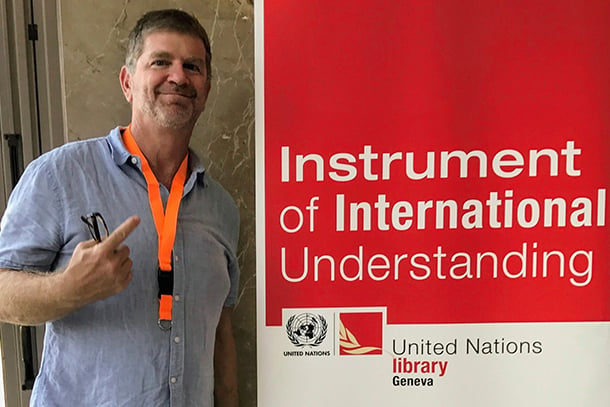
Rochlin leads the Innovation Creativity and Design Practice at Haas, a schoolwide curriculum around design thinking. He co-developed and co-teaches the core course Fundamentals of Design Thinking as well as the applied learning course Haas@Work. In the Evening & Weekend MBA program, he leads We Innovate, a foresight and exponential design sprint that unites the entire cohort. Students have regularly voted Dave a place in Club 6 (professors who score at least six on a seven-point scale on student evaluations).
He brings his experience as a consultant and former executive in both NGOs and technology pioneers to his teaching. A frequent writer and speaker, he is the author of Hunter or Hunted: Technology, Innovation, and Competitive Strategy, an examination of the myths and realities that determine why some firms succeed and other fail in adopting or introducing new technology.
You have had a successful career as a social entrepreneur and continue to consult. Why is it important for you to teach as well?
I think the consistent answer that you’ll get from any dedicated teacher is that it’s fulfilling to help shape students toward whatever their goals and dreams are. As a professor, you get to help people optimize their own path. But at Berkeley, you are also part of an amazing community. Just last week, for example, I had a conversation with an executive team facing challenges in the software field, attended a panel discussion on sustainable innovation, met with teaching colleagues about revising one of our classes, talked with several students about their careers, and chatted with a Business Insider reporter about the metrics of an upcoming IPO. We have a fantastic ecosystem here.
I have a very low tolerance for boring."
How would you describe your teaching style?
There are different styles, including ‘sage on the stage’ or ‘guide on the side.’ I tend toward the latter. Many of my classes have experiential components, where you’re really more of a coach. I enjoy that, and I think MBAs enjoy learning by doing . . . with good counsel. I do have some lecture-style courses, but even then, I often flip the classroom, so that students do some of the presenting, and work through issues. I have a very low tolerance for boring, and I think Berkeley faculty are really great at bringing creativity to the classroom. I know if I see a good idea from another class, I’ll steal it right away.
What is your favorite classroom activity or assignment?
The Haas@Work innovation agency class is super hands-on. The client deliverable at the midpoint of the class is a pitch session. Students work with real clients with real issues—like how to take advantage of new 5G networks, or how to switch people from bottled water to filters. The students will already have taken the core fundamentals of design thinking class, so they have learned an innovation framework of discovery, problem framing, and developing possible solutions. But in this case, students pitch their ideas and offer a variety of possible concepts to the company. The format is very prototype-and-iterate oriented, and students are sometimes out of their comfort zone with this approach. But they trust the process and do great work, and the clients really love it.
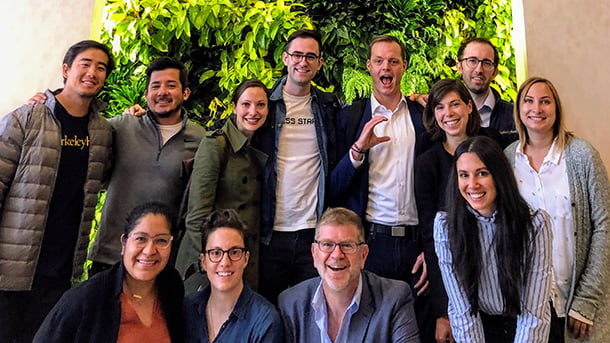
How would you describe Haas students?
They’re very diverse and accomplished, and have so many different work and life experiences. They also are incredibly supportive of one another. What I really like is that they are interested in exploring their own paths. Haas is a relatively small business school, so students often end up not just engaged in, but leading a lot of activities. They can shape their own experience, like HaasID [Innovation Design], a student-run community that focuses on how creative thinking in design fits into business.
What do you like about teaching students in the Evening and Weekend and Full-Time MBA programs?
In some ways, of course, they’re very similar, because Haas is Haas. But there are some differences. The Evening and Weekend students are often motivated by career transformation, and they are looking for a fairly immediate chance to use the tools they learn. It keeps you on your toes making sure what you’re teaching is not just about theory but also about practice. Full time students are taking more classes at once, so in this case you have to be able to relate to the material from their other classes—both talk about the similarities and confront the apparent contradictions. They are looking for relationships among ideas and topics that will be useful in their career decision-making.
The expertise and insight your professors bring helps deepen and enhance your MBA journey. By selecting a top school with top-notch professors, you maximize your experience.
Read more from the Take 5 with a professor series:
- Bill Pearce says most important trait of a successful marketer is empathy
- Maura O'Neill says narrow-mindedness is the enemy of innovation
- Clark Kellogg shares how he teaches design thinking, creativity, and innovation
- Jennifer Cohen talks equitable and inclusive leadership
- Jenny Chatman gives three benchmarks of an effective organizational culture
- Lucas Davis shares hardest economic concept for MBA students to grasp
- Kellie McElhaney talks equity fluency, courage, and vulnerability





